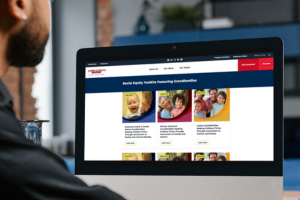Family Caregiving
At some point in our lives, most of us will either be a family caregiver or need one.
In 2023, at least 53 million people were providing informal, usually unpaid, care and support to aging family members and people of all ages with disabilities (including mental health conditions). At the same time, at least 2.5 million grandparents—and an unknown number of other relative caregivers—carried the primary responsibility for caring for grandchildren whose parents were unable to do so. These numbers are increasing rapidly due to growing populations of older adults and people with disabilities; the long-standing shortage of direct care workers, which has reached crisis proportions during the pandemic; the continuing opioid crisis and other issues that are creating thousands of new “grandfamilies” each year, and a variety of other factors.
To better support our nation’s caregivers, it is essential to maintain and increase investments in support for family caregivers.
- Promote equitable access to safe, affordable, quality child care for all families and continue to support discretionary increases in child care spending to build support for families, including kinship/grandfamilies.
- Provide more support for paid and unpaid family caregivers across the lifespan, including through robust respite networks.
- Support comprehensive paid family and medical leave policies that promote time for working parents and other family caregivers to care for themselves, to bond with a new child, or to care for an aging family member or a family member with special needs without jeopardizing their ability to pay for housing, food, and other necessities.
